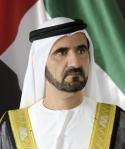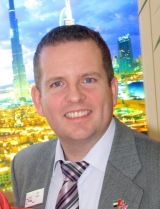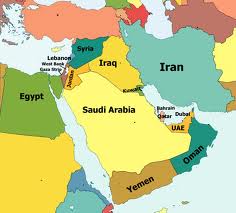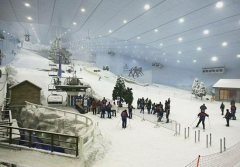How to PR Paradise – An Interview with Ian Scott, Director of the Dubai Tourism & Commerce Board UK
I have recently become fascinated with Dubai and its story from humble beginnings to global phenomenon. I’m intrigued by how one family’s vision has pioneered an ultra-modern, capitalist metropolis in the middle of desert, despite complex geo-political issues of its neighbours.
In a bid to find out more about the Emirate and expand my network, I contacted Ian Scott, Director of the Dubai Tourism and Marketing Board in the UK, who kindly agreed to meet me and be interviewed.
DUBAI AS A CULTURAL PHENOMENON
In your view how has Dubai’s place in the world changed over the last 20 years?
Well 20 years ago it hardly existed. That’s the amazing thing about Dubai, it used to be a port town consisting mostly of merchants trading spices, pearls, textiles, diamonds and things like that. I think It’s a fascinating story actually, oil was found in 1966 but not a great deal of it, whereas neighbouring Emirate Abu Dhabi has got enough oil that they require nothing else to sustain their economy.
The ruling family I think are extremely astute and forward thinking. They invested that oil wealth into building a city based in commerce, which will be sustainable in the long term. They identified tourism, manufacturing and financial services as the most significant pillars in the future of Dubai’s economy.
The oil has now more or less gone, only 2% of GDP is oil and 31% of GDP is tourism. The first hotel (Chicago Beach Hotel) was built in 1974, after that they built essential infrastructure. Approximately 13% of the economy is now based on manufacturing.
Dubai has a massive manufacturing harbour called Jebel Ali with ships coming in trading from all over the world. It even has its own Canary Wharf – a little financial services centre, which is booming as well.
20 years ago, there was really nothing there, there was one hotel and that was it, now it’s got over 600 hotels, 90,000 rooms and more opening everyday. The vision of the rulers was and is amazing.
Dubai’s construction of man-made islands is a daring and pioneering venture, can you tell me a bit more about why they were built?
That’s what tourists want, they want to be on the beach! Dubai’s coastline is very small, it’s only 7 kilometres. Somebody had the idea of creating an island in the shape of a palm tree, which goes about 7 kilometres out to sea – there’s about ten hotels on the palm now.
Are there any plans for anymore islands?
There’s another palm in construction as we speak as well as ‘The World,’ which is 300 islands representing a map of the world. It really is a man-made wonder. There has even been talk of building ‘The Universe,’ which will be another load of islands that would surround The World.
Atlantis is arguably the most famous hotel on The Palm, largely because it spent about £20 million on its opening party in 2008, Kylie Minogue performed and the entire crescent was lit up by some truly amazing fireworks. It’s become quite an iconic hotel.
What Dubai has done is brilliant and it has even more ambitious plans and ideas for the future. Dubai has announced another big development on land. Reclaiming the land from the sea is quite ambitious but Dubai is building another city in the desert and it’s called Sheikh Mohammed City. There‘ll be another hundred hotels there and Universal Studios are going to build a park there, work has started on that already.The vision is to get 20 million tourists to Dubai by 2020. It’s very ambitious but it’s attainable.
What percentage of tourists that visit are British?
We’ve just got figures yesterday for the first quarter of 2013 – the UK accounts for 12% of all tourists visiting Dubai. So we are the third biggest source market in the world. India and Saudi Arabia are bigger than UK in terms of numbers; I don’t think there is a single market in decline.
Do many Britons emigrate?
Yes, around 240,000 British people live in Dubai. The biggest ex-pat demographic is from India, but if you go to Dubai and walk around the bars and restaurants you will see a hundred nationalities in every bar and restaurant from all over the world.
The mix of cultures that live in Dubai is phenomenal. Less than 20% of people that live in Dubai are from Dubai citizens, the other 80% people who live there are not from there. Dubai is a tolerant, welcoming society.
So Dubai’s Islamic tenets doesn’t restrict multiculturalism?
Dubai is an Islamic society at heart and that’s very important to all Emiratis, but every culture is respected in Dubai so it is not an intolerant society at all.
Sometimes stories will hit the press where people have behaved in such a way that has offended local people and that won’t be tolerated. You can go to their country, live in their country and make a lot of money in their country but you can’t disrespect their culture or people. That ethos is protected quite heavily and in my opinion rightly so.
How do you think Dubai is able to disassociate itself from the complex geo-politics of the Middle East?
In some respects, Dubai is a safe haven surrounded by trouble, partly because it is neighboured by Iran and Iraq. The word Middle East conjures up all sorts of negative connotations but Dubai doesn’t seek conflict with anybody. They seek the same ideals and ambitions as most Western cultures.
HOW THE UK DUBAI TOURISM BOARD OPERATES
How is your organisation structured?
We’re the UK branch of the Dubai government’s Tourism and Commerce Board, which is obviously headquartered in Dubai and is headed up by Helal Saeed Almarri, the Director General, who reports to Sheikh Mohammed. The Board is tasked with increasing tourism and inward investment.
There are 19 tourism offices around the world. Each office has a director like me and we are all structured slightly differently, I’m at liberty to structure my team how I see fit.
There are ten of us all here in my office, including myself. Marketing is what we do, there are two people who do trade or travel Industry marketing, B2B if you will. They work with travel agents and tour operator partners.
There are another three people who focus on consumer marketing. In order to get the consumer into the travel agent in the first place, we need them to think favourably about Dubai.
What is the biggest issue your operation faces?
There are three that stand out. Firstly, people think that the culture is too strict and they worry that they can’t have a drink, they can’t wear a bikini around the pool, they can’t hold their husband or wife’s hand for fear of arrest and that’s driven by negative articles over the years in the media.
We’ve got to be careful because we can’t go out and say come to Dubai and drink because it’s culturally sensitive. We subtly point out that Dubai has bars and nightclubs and of course you can drink. We don’t want to be too overt about it, we don’t want a drinking culture per se.
Getting that messaging right must be quite a challenge?
It is! We can’t just say “here’s a list of all our bars,” but we can promote cocktail bars with a fantastic view of downtown Dubai for example, and so we’d talk about the view rather than the booze.
The other issue is that people think it’s purely five star luxury, but we have one star, two star, three star, four star, all-inclusive or self-catering accommodation. You don’t have to eat in the Nobu or in The Ivy – Dubai has shopping malls that have got food courts like anywhere else and local restaurants that you can pay £5 for a meal, but that’s not a big part of the messaging, because we want to maintain the aspirational appeal of Dubai.
The third one is a lot of people think there’s not enough family activities. They believe it’s just hotels, spas and shopping malls. Whereas in fact Dubai has two amazing waterparks, an indoor ski centre, a city for children called Kidzania, and as I mentioned earlier, there’s going to be Universal Studios, so there’s a huge amount of attractions for children.
DUBAI’S PR STRATEGY IN THE UK
Do you run your PR initiatives in-house or through an agency?
The PR company we use is called Limelight – they know travel inside out. They have excellent relationships with key travel media and can leverage Dubai’s editorial appeal very effectively.
Do you have an in-house PR person?
There are three people who manage our communications: there’s a manager, an exec and a coordinator. They oversee the PR agency and ensure we are getting good return investment from those agencies and briefing them and monitoring their work. So yes, it’s not an in-house PR team as such, we don’t write press releases, we don’t talk to journalists but we supervise the team at Limelight.
I’m planning to write my dissertation on evaluation of PR, I’m curious to know how do you and Limelight measure and evaluate PR efforts? I find this can be quite a contentious issue!
The whole point of hiring a PR agency is to get positive coverage in the right media.
In fact, one colleague has just gone out this morning with six journalists who were sourced by the PR agency, we’ll arrange flights and hotels and they court the journalists. They will contact those journalists when they get back and they will try to ensure that we get great coverage.
Ultimately, the journalists writes the article, so we can’t control exactly what they write about but they know we want them to write about the affordability, the family culture, the vibrant night life etc.
When coverage is published, Limelight will put a value on that coverage and that’s the bit that’s contentious. I will always ask for the advertising value – not times it by three or whatever some refer to as ‘PR value.’ If you’ve got a full page in The Sun, what would it cost me to buy a full page in The Sun? And that’s the value I put on it.
Does your agency handle your social media presence?
We manage that internally. We’re on Twitter, Flickr and Youtube but none of those channels are particularly well developed. We don’t have a Facebook page just because I don’t have the resources to do it. There’s no point in having a Facebook page and getting loads of people to like it if you’re not publishing regular content and I just don’t have the resources.
We’ve actually just hired somebody to start in a few weeks that will be responsible for social media maintenance.
What do you enjoy most about your job?
It’s like running your own business without the scary part insofar as I get a salary every month! What I love is the product but it’s also the flexibility to manage what I want to do.

Mohammed bin Rashid Al Maktoum – Prime Minister and Vice President of UAE and constitutional monarch of Dubai
I’ve got a great product, it’s a controversial product, everybody’s got an opinion about it, I can’t imagine doing my job for the Cayman Islands for example. Whilst they’re beautiful, not a lot goes on, whereas in Dubai, there’s a story or something new happening.
It’s not just a destination; it’s probably the most dynamic, ever changing, fast-paced, forward-thinking destination in the world.
Just out of interest, have you ever met Sheikh Mohammed?
Yes, many times. The reason that Dubai is what it is, is because of him – he’s charismatic, he’s creative and dynamic, he speaks to people at trade fairs, he drives his own car, he goes to cafes, he gets involved with projects and of course he’s got massive vision.
ADVICE
What advice would you give to young aspiring marketing professionals?
Firstly, never burn your bridges. If you leave enemies behind, you may find those people will be working on whatever you choose to do next.
Also you’ve got to learn and work out what you think is right and what you think is wrong. What I will never do to anyone here is tell them what’s right. I try to give them direction and support but I want them to learn and make their own mistakes, there’s nothing wrong with making a mistake as long as you learn from them. Marketing is an art rather than a science.
Also I think that customer insight is the most important thing to consider in marketing. There’s no point in wasting millions of pounds doing a wildly creative marketing campaign if there’s no customer insight that underpins its value.
There’s so much we could say about Dubai but if I’m telling people stuff that doesn’t concern them or interest them then what’s the point? So I base every decision on what the customer want and what you want them to believe at the end of it.
What are the key skills that you think are most desirable in graduates and employees?
We’ve been interviewing quite a lot lately and for me it’s personality. Having a degree is fine, but marketing and travel are very sociable, people-orientated industries; it’s not a 9-5 office environment.
You’ve got to be the type of person that can stand up and be friendly and go to networking events and be presentable and engaging.
Thank you for your time Mr Scott, that was extremely interesting.
My pleasure!






Pingback: Spice Girls Reunion, Interplanetary Social Networking and Mickey Mouse Shaped Pumpkins – An Interview with Dave Coombs, Head of UK & EMEA Publicity for Disney Destinations International | SIB:PR
Pingback: Spice Girls Reunion, Interplanetary Social Networking and Mickey Mouse Shaped Pumpkins – An Interview with Dave Coombs, Head of UK & EMEA Publicity for Disney Destinations International | SIB:PR